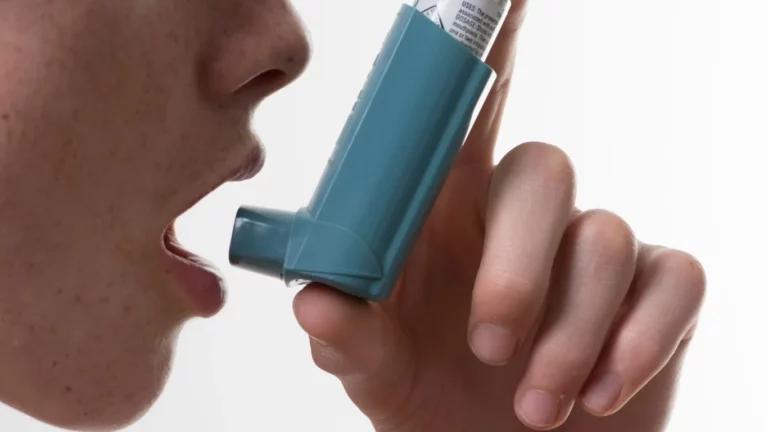Best GERD Treatment Options That Actually Work for Lasting Relief
If you’ve ever experienced that uncomfortable burning sensation in your chest after eating, you’re not alone. It’s actually one of the most common symptoms of gastroesophageal reflux disease (GERD). As a Medical Assistant working in a Gastroenterology Clinic, I’ve seen countless patients struggle with GERD, and let me tell you, it’s no fun. Fortunately, there are plenty of GERD treatment options available that can help alleviate symptoms and improve quality of life. In this article, I’ll be diving deep into some of these treatments, drawing from my personal experience and the most up-to-date medical information to help you understand what works and why.
What is GERD and Why is It So Common?
Before we jump into the treatment options, it’s important to understand what GERD is and why so many people suffer from it. GERD occurs when stomach acid or, occasionally, bile irritates the food pipe lining. This happens when the lower esophageal sphincter (LES) doesn’t function properly, allowing acid to flow back up into the esophagus. As a result, you might experience symptoms like heartburn, regurgitation, and even difficulty swallowing.
Now, why is GERD so common? There are several factors, such as obesity, pregnancy, and a diet rich in spicy or fatty foods, that contribute to its rise. In fact, it’s estimated that about 20% of Americans suffer from GERD regularly. It’s not just a minor inconvenience; if left untreated, GERD can lead to more serious complications like esophagitis, ulcers, and even esophageal cancer. So, knowing the right treatment options is key to getting relief and preventing those issues.
Understanding GERD Treatment Options
When it comes to managing GERD, there’s no one-size-fits-all approach. Treatment usually starts with lifestyle changes and over-the-counter medications, but for some individuals, more advanced treatments may be necessary. Let’s break down some of the most effective GERD treatment options that I’ve seen help my patients in the clinic.
1. Lifestyle Changes
As simple as it may sound, lifestyle changes can have a significant impact on GERD symptoms. In my experience, many patients underestimate the power of basic modifications like altering their diet or changing when they eat. For instance, avoiding large meals and steering clear of trigger foods—like chocolate, caffeine, spicy foods, and citrus—can reduce the likelihood of acid reflux. If you’re one of those people who enjoys a heavy meal right before bed, you might want to try eating earlier in the evening. Experts recommend waiting at least 2-3 hours after eating before lying down to give your stomach time to digest.
- Eat smaller, more frequent meals
- Avoid foods and drinks that trigger acid reflux (like chocolate, caffeine, and alcohol)
- Don’t lie down immediately after eating; wait at least 2-3 hours
- Lose excess weight if needed to help reduce pressure on your stomach
- Elevate the head of your bed to reduce nighttime symptoms
2. Over-the-Counter (OTC) Medications
For many people, over-the-counter (OTC) medications are an effective first line of defense against GERD symptoms. These medications can provide quick relief and help to neutralize stomach acid. From my experience, patients often start with antacids, which are available without a prescription, and they’re great for immediate relief. However, they only address the symptoms, not the underlying cause of GERD.
Other OTC options include H2 blockers, like ranitidine, which reduce the amount of acid your stomach produces. Proton pump inhibitors (PPIs), such as omeprazole, are another popular choice because they work by blocking acid production altogether, giving your esophagus time to heal. Many patients report significant symptom relief with PPIs, but these should be used with caution, as long-term use can come with risks like nutrient deficiencies.
3. Prescription Medications
If OTC medications don’t provide enough relief, your doctor might prescribe stronger medications. Prescription-strength H2 blockers and proton pump inhibitors are often more effective for managing GERD, especially if your symptoms are severe. From my own experience, patients who progress to prescription medications often experience a significant reduction in their symptoms.
In addition to PPIs and H2 blockers, there are also prokinetic agents that help by improving the motility of the digestive system. These medications help your stomach empty more quickly, preventing acid from backing up into the esophagus. However, they can come with side effects, so they’re not commonly prescribed unless necessary.
4. Surgery and Other Procedures
For some individuals, lifestyle changes and medications don’t provide enough relief. In those cases, surgery might be considered. The most common surgery for GERD is called fundoplication, where the top of your stomach is wrapped around the lower esophagus to prevent acid from flowing back up. This procedure has a high success rate, but it’s usually only recommended when other treatment options have failed or when there’s damage to the esophagus.
Another procedure that might be considered is the LINX device, a small ring of magnetic beads that is surgically implanted around the LES. The magnets help keep the LES closed, preventing acid reflux. While this is less invasive than fundoplication, it’s still a surgical option and is typically reserved for more severe cases of GERD.
5. Alternative Therapies
In addition to traditional treatments, some patients find relief through alternative therapies. These can range from herbal remedies to acupuncture, although scientific evidence on their effectiveness for GERD is limited. That being said, some people swear by certain herbs like ginger or chamomile to soothe their stomachs. If you’re considering alternative treatments, I always recommend discussing them with your doctor to ensure they won’t interfere with other medications or treatments you’re undergoing.
While alternative therapies can be helpful for some, they shouldn’t be relied upon as a sole treatment for GERD, especially if your symptoms are more severe. Always talk to your healthcare provider before trying anything new.
Conclusion
In my experience as a Medical Assistant in a Gastroenterology Clinic, I’ve seen how GERD can significantly affect a person’s life. Luckily, there are many treatment options available to help manage this condition, from lifestyle changes and medications to surgery and alternative therapies. If you’re dealing with GERD, don’t hesitate to seek treatment. With the right approach, you can get your symptoms under control and start feeling better.
When to Seek Medical Help for GERD
It’s important to remember that GERD isn’t a condition you should try to manage on your own for long periods of time. If you’re experiencing frequent heartburn, regurgitation, or any other symptoms that suggest GERD, it’s a good idea to seek help from a healthcare professional. In my experience as a Medical Assistant, I’ve seen that many people try to “tough it out,” but chronic GERD can lead to complications, and it’s much easier to treat if caught early.
If you notice any of the following signs, it’s time to see your doctor:
- You’re taking over-the-counter medications frequently without much relief
- Your symptoms worsen over time or become more frequent
- You experience trouble swallowing or feel like food is stuck in your throat
- You’re losing weight unintentionally or experiencing vomiting
- You notice blood in your stool or vomit
Any of these symptoms can signal a more severe form of GERD, and it’s important to consult with your healthcare provider to explore other options. Trust me, waiting too long can make things much harder to treat, so don’t hesitate to get help if you’re concerned.
Long-Term Management of GERD
For many patients, GERD becomes a lifelong condition that requires long-term management. While medications and lifestyle changes can provide relief, they don’t always offer a permanent solution. That’s something I’ve noticed in the clinic: GERD often requires ongoing attention and adjustments as circumstances change. For example, pregnancy, weight gain, and even stress can make GERD symptoms flare up. But with the right strategy, it’s possible to manage GERD and maintain a good quality of life.
Here are a few important things to keep in mind when thinking about long-term GERD management:
1. Regular Monitoring and Adjusting Medications
As with any chronic condition, the treatment plan for GERD may need to be adjusted over time. Some patients start with OTC medications and later need stronger prescriptions. Others may be able to reduce or stop their medication after making significant lifestyle changes. The key is staying in close contact with your healthcare provider to monitor your symptoms and make necessary adjustments. I can’t stress enough how important it is to have open communication with your doctor, especially when symptoms change or new ones appear.
2. Lifestyle Adjustments Are Key
Managing GERD long-term often requires continuing those lifestyle changes we mentioned earlier. That means sticking to a GERD-friendly diet, avoiding known triggers, maintaining a healthy weight, and making sure your sleep habits support your digestive health. As someone who works in the clinic, I’ve seen many patients who think they can “cheat” every now and then, but unfortunately, that often leads to flare-ups. Consistency is key when it comes to managing GERD.
3. Emotional and Stress Management
Stress is a major GERD trigger that is often overlooked. In my experience, many patients find that when their stress levels are high, their GERD symptoms become much worse. Managing stress through mindfulness techniques, relaxation exercises, or even therapy can have a significant impact on your symptoms. I’ve worked with several patients who were able to reduce their GERD symptoms just by implementing a daily relaxation routine, so don’t underestimate the power of managing your mental well-being!
Alternative and Complementary GERD Treatments
As I mentioned earlier, some patients seek relief from GERD through alternative therapies. While these shouldn’t replace standard treatments, they can complement your treatment plan and provide additional relief. I’ve seen patients try various complementary methods with varying degrees of success. Here are a few alternative GERD treatments that some people swear by:
1. Herbal Remedies
There are several herbs that people believe can soothe the digestive system and reduce acid reflux. While the scientific evidence is limited, herbs like ginger, licorice, and chamomile are among the most popular options. Ginger, in particular, has been shown in some studies to have anti-inflammatory properties, which can be helpful in reducing the irritation caused by stomach acid. I’ve personally seen patients who have found ginger tea or ginger supplements to be helpful in calming their stomachs, especially after meals.
2. Acupuncture
Acupuncture is another alternative treatment that some people with GERD turn to. The theory is that acupuncture helps to balance energy in the body and can relieve symptoms of digestive issues. While the research on acupuncture for GERD is still in its early stages, some patients report feeling better after acupuncture sessions. If you’re interested in trying acupuncture, it’s a good idea to find a licensed practitioner who has experience treating gastrointestinal disorders.
3. Probiotics and Gut Health
Gut health is a huge part of managing GERD, and probiotics have gained popularity as a way to support a healthy digestive system. Probiotics are beneficial bacteria that help maintain the balance of microorganisms in your gut. There’s some evidence to suggest that taking probiotics may help alleviate GERD symptoms, but the research is still evolving. If you’re thinking about adding probiotics to your treatment plan, it’s worth discussing with your healthcare provider to see if it could be a good fit for you.
Medical Procedures and Surgical Options
As we touched on earlier, surgery is sometimes necessary for patients with severe GERD that hasn’t responded to other treatments. But even within the realm of surgery, there are different approaches. The choice of procedure largely depends on the severity of the GERD and the specific health needs of the patient. Here are some of the most common surgical and procedural options available:
1. Fundoplication
Fundoplication is the most common surgical procedure used to treat GERD. During this procedure, the surgeon wraps the top of the stomach around the lower esophagus to reinforce the LES, preventing acid reflux. In my experience, this procedure has been very effective for patients who have severe, persistent GERD that doesn’t respond to other treatments. However, it’s a more invasive procedure, so it’s typically only considered when other treatments have failed.
2. LINX Procedure
Another option is the LINX procedure, which involves implanting a small ring of magnetic beads around the LES. These beads help to keep the valve closed, preventing acid from flowing back up into the esophagus. The LINX procedure is minimally invasive and often recommended for patients with moderate to severe GERD. It has shown promising results, especially for those who don’t want to undergo the more invasive fundoplication surgery.
Managing GERD During Pregnancy
Managing GERD during pregnancy can be a bit tricky, as many of the treatments that work for others aren’t always safe for expectant mothers. I’ve worked with several pregnant patients who experience a flare-up of GERD symptoms due to the hormonal changes and the growing pressure on the stomach from the baby. For these patients, it’s essential to approach treatment with extra care, avoiding medications or treatments that could potentially harm the baby.
During pregnancy, lifestyle changes are particularly important. Small, frequent meals and avoiding foods that trigger acid reflux are usually a good place to start. One thing I’ve seen help many pregnant women is elevating the head of the bed during sleep to prevent acid from traveling up the esophagus. It’s also important to avoid lying down right after eating, which is another common trigger for reflux. In my experience, these non-medical adjustments are often enough to keep symptoms manageable without resorting to medications.
1. Over-the-Counter Remedies for Pregnancy
For mild symptoms, pregnant women can often use some over-the-counter antacids. However, it’s crucial to consult with a healthcare provider before taking any medication, as some antacids contain ingredients that could potentially be harmful to the baby. Generally, calcium carbonate-based antacids (like Tums) are considered safe during pregnancy, but it’s always best to ask your doctor first.
2. Avoiding Harmful Foods and Drinks
During pregnancy, certain foods and drinks can exacerbate GERD symptoms. I’ve seen many patients struggle with things like caffeine, chocolate, and citrus, all of which are known GERD triggers. But when you’re pregnant, it can be challenging to avoid some of those comfort foods. Nonetheless, avoiding those foods and beverages can make a noticeable difference. Additionally, it’s a good idea to cut back on spicy or greasy foods, as they tend to irritate the digestive system.
Long-Term Outlook and Prevention of GERD Complications
When it comes to GERD, it’s essential to take the long-term outlook seriously. While it’s possible to control symptoms with medications and lifestyle changes, GERD can lead to more serious complications if left untreated. From my experience, I’ve seen how GERD can affect people’s lives in ways they never imagined. It’s not just about heartburn; if GERD progresses unchecked, it can lead to issues like esophageal ulcers, narrowing of the esophagus, and even cancer in severe cases.
Fortunately, with the right management, you can prevent most of these complications. Early intervention is key. If you’re managing GERD with lifestyle changes, medications, or even surgery, staying on top of your treatment plan is crucial. Here are a few ways you can reduce your risk of complications:
1. Regular Checkups with Your Doctor
Regular checkups are a must for anyone dealing with chronic GERD. I recommend that my patients follow up with their healthcare provider every 6-12 months, especially if they are on long-term medication or if their symptoms aren’t fully under control. This way, any potential complications can be caught early before they turn into more significant issues.
2. Avoiding Smoking and Excessive Alcohol
One of the best things you can do for your GERD is to stop smoking and cut back on alcohol. Smoking weakens the LES, making it easier for acid to reflux into the esophagus. Alcohol, on the other hand, can irritate the stomach lining and increase acid production. If you’re struggling with GERD and these habits, consider seeking support to quit smoking or limit alcohol intake. I’ve seen many patients experience a significant improvement in their GERD symptoms after quitting smoking, and it’s one of the best long-term strategies for reducing your risk of complications.
3. Managing Other Health Conditions
If you have other conditions that affect your digestive health—like obesity, diabetes, or a hiatal hernia—making sure those are well-managed can go a long way in controlling GERD. As someone who works in a Gastroenterology Clinic, I’ve seen how conditions like obesity can increase the pressure on the stomach, making GERD worse. Managing these conditions through diet, exercise, and medication can help reduce the strain on your digestive system and keep GERD symptoms under control.
References
For more information about GERD and treatment options, consider checking out these trusted resources:
Disclaimer
This article is for informational purposes only and should not be considered medical advice. Always consult with a healthcare professional before making any changes to your treatment plan. The content shared here reflects my personal experience as a Medical Assistant in a Gastroenterology Clinic, but individual cases may vary, and treatment options should be tailored to your specific needs by a licensed healthcare provider.

Camellia Wulansari is a dedicated Medical Assistant at a local clinic and a passionate health writer at Healthusias.com. With years of hands-on experience in patient care and a deep interest in preventive medicine, she bridges the gap between clinical knowledge and accessible health information. Camellia specializes in writing about digestive health, chronic conditions like GERD and hypertension, respiratory issues, and autoimmune diseases, aiming to empower readers with practical, easy-to-understand insights. When she’s not assisting patients or writing, you’ll find her enjoying quiet mornings with coffee and a medical journal in hand—or jamming to her favorite metal band, Lamb of God.















